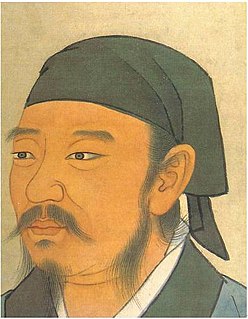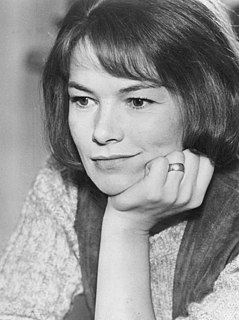A Quote by Albert Einstein
I have only two rules which I regard as principles of conduct. The first is: Have no rules. The second is: Be independent of the opinion of others.
Related Quotes
It is paltry philosophy if in the old-fashioned way one lays down rules and principles in total disregard of moral values . As soon as these appear one regards them as exceptions, which gives them a certain scientific status, and thus makes them into rules. Or again one may appeal to genius , which is above all rules; which amounts to admitting that rules are not only made for idiots , but are idiotic in themselves.
It is essential..that you should form and adopt certain rules or principles, for the government of your own conduct and temper. Unless you have such rules and principles, there will be numberless occasions on which you will have no guide for your government but your passions..It is in the Bible, you must learn them, and from the Bible how to practice them.
A man should always have these two rules in readiness. First, to do only what the reason of your ruling and legislating faculties suggest for the service of man. Second, to change your opinion whenever anyone at hand sets you right and unsettles you in an opinion, but this change of opinion should come only because you are persuaded that something is just or to the public advantage, not because it appears pleasant or increases your reputation.
Confronted with such a variety most philosophers try to establish one approach to the exclusion of all others. As far as they are concerned there can only be one true way- and they want to find it. Thus normative philosophers argue that knowledge is a result of the application of certain rules, they propose rules which in their opinion constitute knowledge and reject what clashes with them.
Always follow these two rules: first, act only on what your reasoning mind proposes for the good of humanity, and second, change your opinion if someone shows you it's wrong. This change of mind must proceed only from the conviction that it's both correct and for the common good, but not because it will give you pleasure and make you popular.
There are three distinct kind of judges upon all new authors or productions; the first are those who know no rules, but pronounce entirely from their natural taste and feelings; the second are those who know and judge by rules; and the third are those who know, but are above the rules. These last are those you should wish to satisfy. Next to them rate the natural judges; but ever despise those opinions that are formed by the rules.
Two simple principles lie at the bottom of the whole matter, and they may be precipitated into two rules. The first is that, when there is a choice, the milder drink is always the better-not merely the safer but the better. The second is that no really enlightened drinker ever takes a drink at a time when he has any work to do. There is, of course, more to it than this; but these are sufficient for the beginner, and even the virtuoso never outgrows them.
The United States of course wants to follow the highest standards of conduct with regard to enemy combatants who follow the rules of war. It should and does follow the Geneva Conventions scrupulously when fighting the armed forces of other nations that have signed the Geneva Conventions or follow their principles.
But this I know; the writer who possesses the creative gift owns something of which he is not always master--something that at times strangely wills and works for itself. He may lay down rules and devise principles, and to rules and principles it will perhaps for years lie in subjection; and then, haply without any warning of revolt, there comes a time when it will no longer consent.
One of the horribly frustrating things about writing feature films is the rules everyone applies and says, 'You have to do this by the end of the first act and by the end of the second act you must introduce this.' As if there were rules to life or telling a story or the ways things happen, which of course there aren't.




































